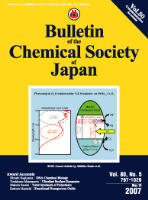
BULLETIN OF THE CHEMICAL SOCIETY OF JAPAN
Scope & Guideline
Catalyzing Progress: Connecting Ideas in Chemistry
Introduction
Aims and Scopes
- Materials Chemistry:
Research on the synthesis, characterization, and application of new materials, particularly nanomaterials, polymers, and organic-inorganic hybrids, is a central theme. - Catalysis and Reaction Mechanisms:
The journal publishes articles that explore catalytic processes, reaction mechanisms, and the design of novel catalysts for various chemical transformations. - Chemical Biology and Medicinal Chemistry:
There is a significant focus on the intersection of chemistry with biology, including drug design, biomolecular interactions, and the synthesis of biologically active compounds. - Computational Chemistry:
Many papers utilize computational methods to study molecular systems, predict chemical behavior, and guide experimental design. - Supramolecular Chemistry:
The journal highlights research in supramolecular systems, including host-guest chemistry, molecular recognition, and the development of functional materials based on supramolecular interactions. - Environmental Chemistry:
Research addressing chemical processes related to environmental issues, such as pollution control, sustainable chemistry, and the development of green technologies, is also prevalent.
Trending and Emerging
- Nanotechnology and Nanomaterials:
Research focusing on the synthesis, characterization, and application of nanomaterials has increased significantly, driven by their potential in various fields including electronics, catalysis, and medicine. - Sustainable and Green Chemistry:
There is a growing emphasis on sustainable practices, including the development of eco-friendly catalysts, renewable feedstocks, and methods that minimize waste and energy consumption. - Machine Learning and Artificial Intelligence in Chemistry:
The integration of machine learning and AI techniques in chemical research to predict outcomes, optimize reactions, and analyze data is emerging as a significant trend. - Biomaterials and Biocompatible Materials:
The development of materials for biomedical applications, including drug delivery systems and tissue engineering, is increasingly prominent in recent publications. - Photocatalysis and Solar Energy Conversion:
Research in photocatalysis for energy applications, particularly solar hydrogen production and CO2 reduction, is gaining traction as a response to the global energy crisis.
Declining or Waning
- Traditional Organic Synthesis:
There seems to be a decline in publications focused solely on traditional organic synthesis methods, as more emphasis is placed on innovative and sustainable approaches. - Inorganic Chemistry:
Research specifically dedicated to classical inorganic chemistry topics appears to be waning, as the journal increasingly prioritizes interdisciplinary studies involving materials science and catalysis. - Analytical Chemistry:
While analytical techniques remain important, the volume of articles solely dedicated to classical analytical methods has diminished in favor of integrated approaches that combine analytical chemistry with other fields.
Similar Journals
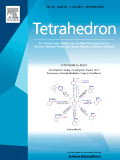
TETRAHEDRON
Innovating drug discovery through groundbreaking research.TETRAHEDRON, published by Pergamon-Elsevier Science Ltd, is a leading peer-reviewed journal that has been pivotal in advancing the fields of Biochemistry, Drug Discovery, and Organic Chemistry since its inception in 1957. With an ISSN of 0040-4020 and an E-ISSN of 1464-5416, this journal provides a platform for the dissemination of cutting-edge research and innovative methodologies that contribute significantly to the scientific community. Recognized for its rigorous editorial standards, TETRAHEDRON has been categorized in the Q3 quartile for 2023 across its relevant fields, reflecting its solid impact within the scientific sphere. Despite the current absence of Open Access options, the journal continues to engage a diverse readership, offering invaluable insights and advancements that fuel both academic and industrial applications. With an ongoing commitment to excellence, TETRAHEDRON remains an essential resource for researchers, professionals, and students aiming to stay at the forefront of chemistry and biochemistry research.
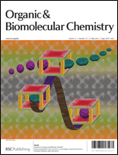
ORGANIC & BIOMOLECULAR CHEMISTRY
Exploring innovative pathways in chemistry research.ORGANIC & BIOMOLECULAR CHEMISTRY is a prestigious academic journal published by the Royal Society of Chemistry, dedicated to advancing the fields of organic and biomolecular chemistry. With its ISSN of 1477-0520 and E-ISSN of 1477-0539, this journal plays a pivotal role in disseminating high-quality research and contributing to the scientific community, particularly in biochemistry, organic chemistry, and physical and theoretical chemistry. Currently ranked in the third quartile for Biochemistry and the second quartile for Organic Chemistry and Physical and Theoretical Chemistry, it caters to a diverse audience of researchers, professionals, and students who seek insightful studies and reviews. With a publication history spanning since 2003 and ongoing till 2024, the journal fosters open access to its articles, encouraging the free exchange of knowledge. Situated in the vibrant academic environment of Cambridge, UK, ORGANIC & BIOMOLECULAR CHEMISTRY serves as a vital resource for innovative research at the intersection of chemical sciences.
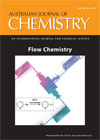
AUSTRALIAN JOURNAL OF CHEMISTRY
Bridging theory and practice for a sustainable future.The Australian Journal of Chemistry, with an ISSN of 0004-9425 and an E-ISSN of 1445-0038, is a distinguished publication from CSIRO PUBLISHING, dedicated to advancing the field of chemistry since its inception in 1948. Based in Australia, this journal serves as a platform for original research articles, reviews, and innovative studies that encompass a wide spectrum of chemical disciplines, aiming to foster communication and collaboration among researchers globally. Despite its Q3 ranking in the Chemistry (Miscellaneous) category and standing at rank #236 in Scopus’ general chemistry classification, it remains an essential resource for professionals and students seeking to stay informed about emerging trends and discoveries in chemistry. The journal does not offer open access, emphasizing the premium quality of peer-reviewed content that adheres to rigorous academic standards. By bridging theory and practice, the Australian Journal of Chemistry continues to play a crucial role in shaping the future of chemical sciences.
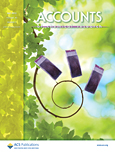
ACCOUNTS OF CHEMICAL RESEARCH
Innovating Connections Between Chemistry and Clinical PracticeACCOUNTS OF CHEMICAL RESEARCH, published by the American Chemical Society, is a premier journal dedicated to advancing the field of chemistry and its applications in medicine. With an impressive impact factor and recognition as a Q1 journal in both chemistry and medicine categories, it ranks among the top-tier publications, exhibiting an outstanding Scopus rank of 8 out of 408 in general chemistry, placing it in the 98th percentile. This journal has been a vital source of innovative and significant research since its inception in 1968, and it aims to provide a platform for high-quality research articles, reviews, and critical essays that bridge the gap between chemical research and clinical implications. While it is not an open-access publication, the insights available in Accounts of Chemical Research are invaluable for researchers, professionals, and students seeking to explore the latest developments and interdisciplinary approaches within the dynamic fields of chemistry and medicine.

RUSSIAN CHEMICAL REVIEWS
Exploring the Depths of Chemical KnowledgeRUSSIAN CHEMICAL REVIEWS, published by the esteemed ND Zelinsky Institute of Organic Chemistry, RAS, stands as a prominent platform for disseminating high-quality research in the diverse field of chemistry. With an ISSN of 0036-021X and an E-ISSN of 1468-4837, this journal has earned its place in the Q1 quartile of Chemistry (miscellaneous) for 2023, reflecting its outstanding impact and rigorous peer-review process. The journal encompasses a wide array of topics within chemistry, providing critical reviews that advance understanding and foster collaboration among researchers, professionals, and students globally. With its consistent publication since 1970, RUSSIAN CHEMICAL REVIEWS not only serves as a valuable resource for the latest advancements in the field but also plays a crucial role in shaping future research directions. The journal is based in the Russian Federation, with its office located at 47 Leninsky Pr, Moscow 119991, RUSSIA. As an essential reference for those in the chemical sciences, it provides an ideal avenue for authors looking to publish impactful reviews that contribute to the broader scientific community.
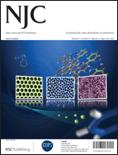
NEW JOURNAL OF CHEMISTRY
Advancing the Frontiers of Chemistry and Materials ScienceNEW JOURNAL OF CHEMISTRY, published by the prestigious Royal Society of Chemistry, serves as a vital platform for the dissemination of research in the dynamic fields of chemistry, catalysis, and materials science. With an impressive ISSN of 1144-0546, this journal boasts a rich history, having been established in 1996, and is set to continue its impactful publication through 2024. The journal is recognized in several categories, achieving a Q2 ranking in both chemistry and materials chemistry, and a Q3 rank in catalysis, reflecting its significance within these disciplines. Researchers will find it particularly noteworthy that the journal holds an esteemed position in the Scopus rankings, with a 65th percentile standing in general chemistry. Though it currently operates on a subscription model, its commitment to advancing the frontiers of chemistry makes it an essential resource for academics, professionals, and students seeking to keep abreast of the latest advancements and innovative methodologies in their fields.
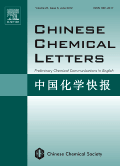
CHINESE CHEMICAL LETTERS
Connecting Ideas, Transforming Chemical Science.CHINESE CHEMICAL LETTERS, published by Elsevier Science Inc, is a premier journal in the field of chemistry, notably recognized for its focus on innovative research in multidisciplinary areas of the discipline. With its ISSN 1001-8417 and E-ISSN 1878-5964, this journal has established itself as a valuable resource for academics since its inception in 1996, with coverage extending to 2024. Categorized in the top tier (Q1) for Chemistry (miscellaneous), it ranks an impressive #37 out of 408 in Scopus's General Chemistry category, reflecting its significant influence and contribution to the field, with a remarkable 91st percentile ranking. Though it does not currently offer open access, CHINESE CHEMICAL LETTERS remains accessible to researchers through institutional subscriptions and provides crucial insights and advancements in chemical research, making it an essential publication for professionals and students aiming to stay at the forefront of chemical sciences.

Russian Journal of Physical Chemistry A
Illuminating the Path of Chemical UnderstandingWelcome to the Russian Journal of Physical Chemistry A, a prominent publication in the field of Physical and Theoretical Chemistry, published by MAIK NAUKA/INTERPERIODICA/SPRINGER. This journal, with ISSN 0036-0244 and E-ISSN 1531-863X, has been a vital platform for disseminating significant research findings since its inception in 1996. As a key contributor to academic discourse, it aims to provide high-quality articles that explore fundamental and applied aspects of physical chemistry, thereby enhancing understanding and innovation in the discipline. Although currently categorized as Q4 by Scopus (2023), the journal is positioned to evolve with the scholarly landscape, continually striving to improve its impact and relevance. With no open access options available, subscription to this journal is essential for those keen on enriching their knowledge and staying current with advancements in physical chemistry. Researchers, professionals, and students alike will find invaluable insights and robust discussions that can inspire their work and studies.

Moscow University Chemistry Bulletin
Empowering the Next Generation of ChemistsMoscow University Chemistry Bulletin is a distinguished academic journal dedicated to advancing the field of chemistry, published by PLEIADES PUBLISHING INC. With an ISSN of 0027-1314 and an E-ISSN of 1935-0260, this journal provides a platform for researchers, professionals, and students to explore a wide range of topics in general and specialized chemistry. While it holds a current Q4 ranking in the “Chemistry (miscellaneous)” category according to Scopus, the journal is committed to broadening its scope and visibility, aiming for greater impact in the global scientific community. Moscow University Chemistry Bulletin focuses on the publication of cutting-edge research, reviews, and discussions that stimulate innovation and collaboration. Although it is not an Open Access journal, it plays a crucial role in disseminating knowledge and fostering academic dialogue within the field, as it converges towards significant findings from 2004 to 2024. The continuous development of its content holds the potential to attract a diverse readership, making it a valuable resource for those involved in the chemical sciences.
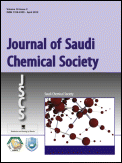
Journal of Saudi Chemical Society
Catalyzing Progress in the World of Chemistry.The Journal of Saudi Chemical Society, published by ELSEVIER, stands as a premier platform for advancing knowledge in the field of chemistry. Since its inception in 2009, this Open Access journal has garnered significant attention, securing a prestigious Q1 ranking in the Chemistry (miscellaneous) category for 2023, reflecting its position among the top journals in the discipline. With an impressive Scopus ranking of #66 out of 408 in General Chemistry, this journal boasts a commendable 83rd percentile, underscoring its impact and relevance in the global research community. The journal aims to disseminate high-quality research articles, reviews, and case studies, fostering innovation and collaboration among chemists and allied professionals. By enabling widespread access to cutting-edge research, the Journal of Saudi Chemical Society plays a crucial role in supporting the educational and professional development of students, researchers, and practitioners alike, making it an essential resource for anyone invested in the dynamic field of chemistry.